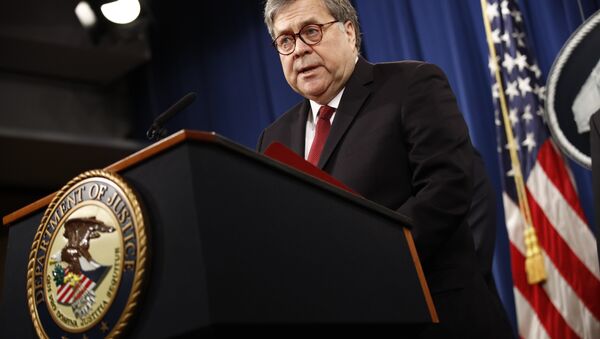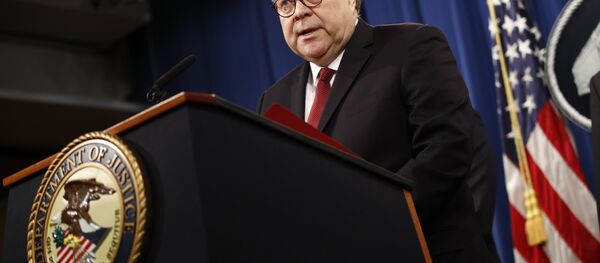In his interview with "CBS This Morning," Barr said the special counsel could have concluded in his 400-page report that the president broke the law without actually charging him — or cleared him of any wrongdoing.
“I personally felt he could've reached a decision," he told CBS News chief legal correspondent Jan Crawford during an exclusive interview in Anchorage, Alaska, on Thursday.
"The opinion says you cannot indict a president while he is in office, but he could've reached a decision as to whether it was criminal activity. But he had his reasons for not doing it, which he explained and I am not going to, you know, argue about those reasons,” Barr added.
Barr said he and Deputy Attorney General Rod Rosenstein "felt it was necessary" for them to make a decision on the issue after he became aware that Mueller would not make a determination in his obstruction of justice probe even though the special counsel investigated 10 instances in which Trump reportedly tried to derail the investigation.
Mueller on Wednesday said bringing criminal charges against the president was not an option since the special counsel's office was part of the Justice Department and bound by its policies, yet also ruled out the possibility of issuing a sealed indictment or making an accusation of criminality without pursuing formal charges.
The US Constitution "requires a process other than the criminal justice system to formally accuse a sitting president of wrongdoing," the special counsel added.
Barr said Thursday he did not know what Mueller was "suggesting" in his statement, noting that the Department of Justice doesn't use its powers of investigating crimes as an adjunct to Congress.
READ MORE: Mueller’s Claim That Indicting Trump is ‘Unconstitutional’ Sits on Shaky Ground
When asked about accusations, mostly from Democrats, that he has been shielding the president from scrutiny since taking office, Barr said he expected the flurry of criticism, which he noted "goes with the territory of being attorney general in a hyper-partisan period of time."
"The Department of Justice is all about the law, and the facts and the substance," he said. "And I'm going to make the decisions based on the law and the facts and I realize that's in tension with the political climate we live in because people are more interested in getting their way politically."
The Mueller report, released in April, concluded that President Donald Trump's campaign team did not collude with Russia. However, the report also described 10 episodes regarding Trump's actions that may constitute possible obstruction of justice. Russia has repeatedly denied any claims of interference in the US political system, stressing that the allegations were made up to excuse the election loss of Trump's 2016 opponent Hillary Clinton, as well as to deflect public attention from actual instances of election fraud and corruption.



